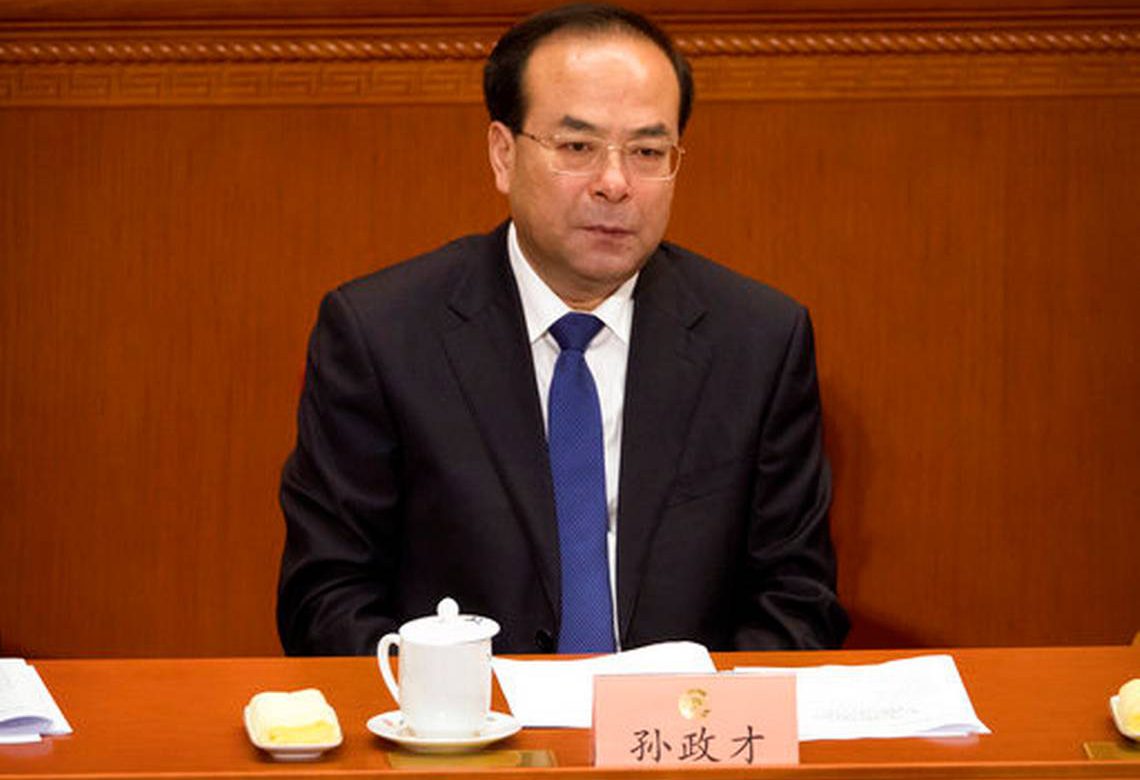This material belongs to: Idaho Statesman.
One-time rising Chinese political star Sun Zhengcai is being investigated for violations of party discipline, the ruling Communist Party announced Monday, making him the highest-ranking serving official to be ensnared by President Xi Jinping‘s sweeping anti-corruption campaign, now in its fifth year.
The party’s anti-corruption watchdog agency said Sun, the leader of the megacity of Chongqing until last week, is suspected of “serious violation of discipline,” its usual shorthand for corruption and abuse of power.
No details were given in Monday’s one-sentence announcement, which comes ahead of a party congress at which Xi is expected to receive a second five-year term as party chief and unveil a new slate of top leaders loyal to him alone.
“It’s a big show of force,” said Willy Lam, a long-time observer of China’s elite politics at the Chinese University of Hong Kong. “It shows how over the last five years, Xi has really built up his own faction while the others have been marginalized.”
Sun, 53, sat on the party’s 25-member Politburo and had been seen as a candidate for promotion to the body’s Standing Committee, the select group of leaders who constitute the apex of political power in China.
He was removed suddenly from his Chongqing post last week and replaced by protege Chen Min’er, who is tipped to be promoted to the Politburo, but not its Standing Committee.
The elimination of Sun, who was identified most closely with the China Youth League faction around Xi’s predecessor, Hu Jintao, will help ensure that Xi’s supporters will hold strong majorities on both the Politburo and the smaller Standing Committee, Lam said.
“This demonstrates Xi’s solid grip on personnel arrangements for the party congress,” he said.
Aside from creating an opening to elevate Chen, a Xi loyalist, Sun’s removal is seen as a demonstration of Xi’s political muscle and power over the party’s factions. Fighting corruption has been a vehicle for Xi to show his influence, and he has pledged to take down both high-ranking officials, known as “tigers,” and rank-and-file members, known as “flies.”
In China’s political parlance, Xi is showing that he remains serious about tackling corruption at the highest levels in the run-up to the party congress that will take place in the autumn, said Qiao Mu, a Beijing political commentator.
“Sun was seen as a rising star, and unlike other high-level officials Xi has gone after, he was not yet retired,” Qiao said.
Even after retirement, Politburo members had been seen as practically untouchable in recent decades until Xi took power as party leader in 2012.
Xi shook up China’s political establishment by quickly taking down four members of the previous Politburo who left office upon his appointment to the top party post. They consisted of a former security czar, two top generals and the former leader of Chongqing, Bo Xilai, all of whom were accused of corruption.
But until Sun’s downfall this month, Xi’s campaign had not netted a high-profile “tiger” in years, leading political observers to question whether the campaign was running out of steam.
Chen’s appointment also ensures that Xi supporters control all four of China’s major cities that are directly administered under the central government, giving them status equivalent to entire provinces.
It’s also a signal to party delegates that “Xi is in charge and if they want to advance, they need to profess loyalty to him,” Lam said.
 info@anticorr.media
info@anticorr.media

